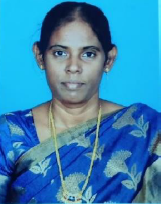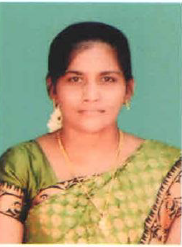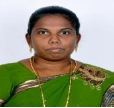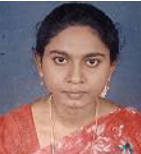Department of Mathematics
The Department of Mathematics is one of the oldest Departments of the College. The Mathematics Department aspires to be recognized for its excellence, Valuable and expert resource to the College and maintains a good record of service from its inception in 1962. In 1966, B.Sc Mathematics was introduced under the affiliation of Madurai Kamaraj University. When the Institution was upgraded into a first grade College, 24 students had enrolled and now the strength has reached its pinnacle. Switching over to the past in memorylane, we remember with gratitude the following eminent personalities in our Vineyard.
Department of Mathematics
1. Prof. V.Durairaj M.Sc.,B.T.- (First Head of the Department)
2. Prof.N.Rajakrishnan M.Sc., (1968 to 1976)
3. Prof.A.S.Franklin Theodore Jeyasingh M.Sc.,M.Phil., (1968 to 2004)
4. Prof.S.Nelsonraj M.Sc., (1968 to 2003)
5. Prof.S.Jeyasingh M.Sc.,M.Phil., (1969 to 2004)
6. Prof.A.Evangeline M.Sc.,M.Phil., M.Ed ( 1981 to 2013)
7. Prof. P.Alayamani M.Sc.,M.Phil.,M.Ed., P.G.D.C.A (1988 to 2016)
At present, the Department is under the leadership of Dr. S.Thilaga Leelavathi with 4 permanent faculty members. Our faculty members have specialized in various areas of Algebra, Topology, and Graph Theory.
The Department was elevated into a Postgraduate Department in the year 2006. Department Library functions for the benefit of the staff and students. We have computers in our Department with free internet facilities for the usage of staff and students.
The first generation learners contribute immensely to the Department. We encourage them to take part in Association activities and to exhibit their keen mathematical Skill. Their involvement nourishes their personality traits and improves corporate fellowship. They eagerly attend on campus and off campus seminars, workshops, quiz etc. Social and moral values are instilled in students through extension activities.
“Maxo – Quiz,” a “rolling trophy cum cash prize-Quiz programme” for High School students is conducted every year to create and spread interest in Mathematics and general knowledge.
The year 2012 is a golden year, for it marks the Golden Jubilee of the College and Department of Mathematics as well. We are proud to see our alumni, shining like stars in the galaxy, holding high positions in various domains- Education, Banking, I.T, Business, Religion and Government both in India and abroad.
We give honour and glory to God who has been guiding through his abiding presence in every milestone
| S.No |
FACULTIES |
NAME |
DESIGNATION |
PROFILE |
|---|---|---|---|---|
| 1. |  |
Dr. S. Thilaga Leelavathi, M.Sc.,M.Phil.,Ph.D., | Assistant Professor& Head of the Department | View Profile |
| 2. |  |
Dr. H. Velwet Getzimah, M.Sc.,B.Ed.,M.Phil.,Ph.D., | Assistant Professor | View Profile |
| 3. |  |
Mrs. K. Jenita Devanesam,M.Sc.,M.Phil., | Assistant Professor | View Profile |
| 4. |  |
Dr. G. Sugantha,M.Sc.,M.Phil.,Ph.D., | Assistant Professor | View Profile |
| 5. |  |
Dr. S. Kuberal,M.Sc.,M.Phil.,Ph.D., | Assistant Professor | View Profile |
| S.No |
FACULTIES |
NAME |
PROFILE |
|---|---|---|---|
| 1. |  |
Mrs. S.Sivanthi, M.Sc.,M.Phil., | View Profile |
| 2. |  |
Mrs. S. Viji Smiline, M.Sc.,M.Phil., | View Profile |
| 3. |  |
Mr.A.Samuel Issacraj | View Profile |
B.Sc Mathematics
Programme Outcomes
1. Apply
the acquired knowledge of fundamental concepts in the field of science and to
find solutions to various problems.
2. Acquire
analytical reasoning, problem solving skills and reflective thinking through
modern methods of learning.
3. Apply
the knowledge of mathematics for the attainment of solutions to the problem
that come across in day-to-day activities.
4. Apply
knowledge, understanding and skills to solve the unsolved problems using the
principles of mathematics.
5. Carry
out field works and projects, both independently and in collaboration with
others, and to report in a constructive way.
6. Transfer
the knowledge to the other stakeholders through extensive community development
programme.
7. Improve
communication ability and knowledge transfer through ICT aided learning
integrated with Library resources.
8. Develop
confidence to appear for competitive examinations, attain competency in job
market/entrepreneurship.
M.Sc Mathematics
Programme Outcomes
1. Acquire
an overview of concepts, fundamentals and advancements of science in different disciplines
2. Students
will be able to apply disciplinary or interdisciplinary learning across
multiple contexts, integrating knowledge and practice
3. Investigate,
design and apply appropriate methods to solve problems in science, mathematics,
technology
4. Think
critically, work independently and focus in research-oriented activities.
5. Inculcate
an ability to engage in life-long learning to improve professional competency.
6. Employ
highly developed conceptual, analytical, quantitative and technical skills and
are adept with a range of technologies.
7. Communicate
effectively on scientific achievements, basic concepts and recent developments
with experts and with society at large
8. Engage
in intellectual exchange of ideas with researchers of other disciplines to
address important research issues
B.Sc
Mathematics
Programme
Specific Outcomes
1. Understand
the foundation of mathematics and perform basic computations in higher
mathematics.
2. Communicate
mathematics effectively using various instructional strategies.
3. Demonstrate
a computational ability in solving a wide array of mathematical problems.
4. Develop
mathematical ideas from basic axioms and analyze mathematical reasoning.
5. Utilize
mathematical skills to solve theoretical and applied problem.
6. Create,
use and analyze graphical representation of mathematical relationships.
7. Identify
applications of mathematics in various disciplines.
8. Build
a solid foundation for higher studies in mathematics.
M.Sc
Mathematics
Programme
Specific Outcomes
1. Develop
an appreciation of the basic concepts of Algebra, Analysis, Differential
Equations, Combinatorics, Differential Geometry, Optimization techniques and
Statistics.
2. Develop
a quest for knowledge which will pave way for doing Mathematics by students
themselves.
3. Develop
an analytical thinking and knowledge for research.
4. Learn
many mathematical structures.
5. Gain
the confidence to work in a team.
6. Construct
and express logical arguments.
7. Develop
generic skills that will pave way for their career.
8. Explore
current research problems in mathematical sciences.
| S.No | Name | Publications Details |
|---|---|---|
| 1. | H. Velwet Getzimah | Click Here |
